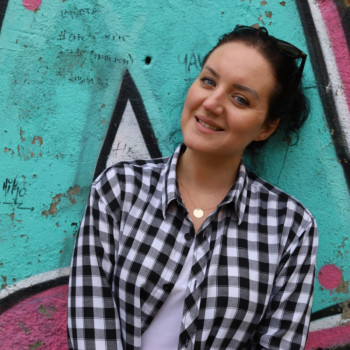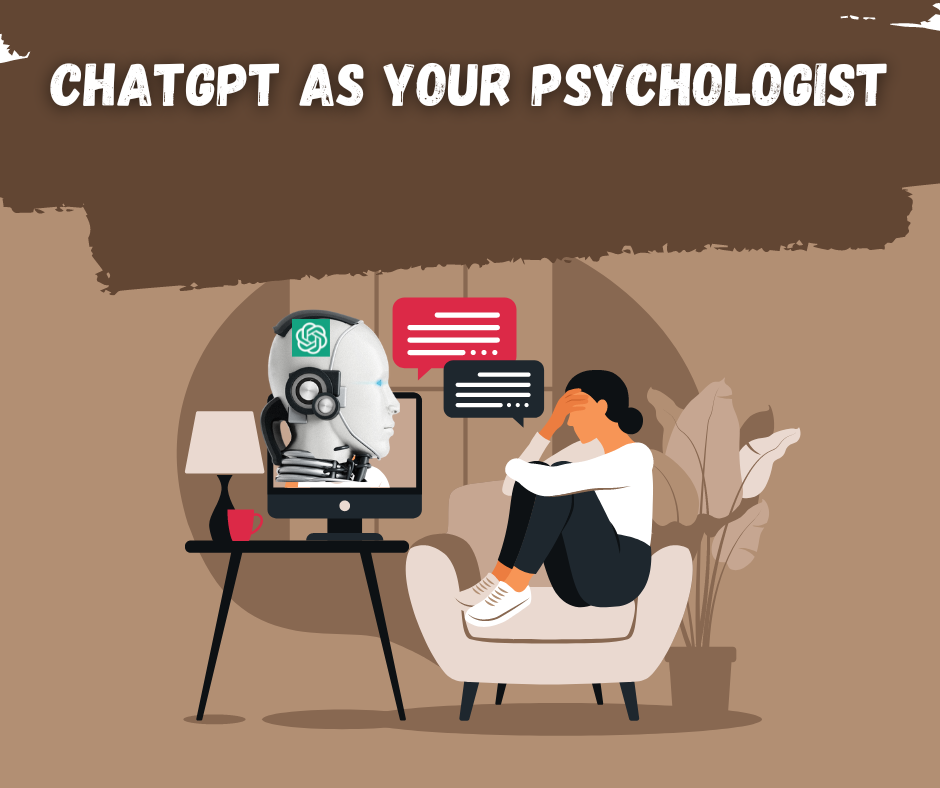Can ChatGPT Be Your Psychologist? Let’s See…
Written by Tanja Lepcheska We Tested
Key Points
✅ ChatGPT can act as your psychologist and therapist and give you responses based on your most intimate personal issues and emotional struggles.
✅ It can give you a different insight into things and valid suggestions on what you can do to feel better.
✅ ChatGPT warns that it is not a replacement for a psychologist or counselor. But that has not stopped some people from using the platform as their therapist.
We live in times when it is completely fine to forget about traditional therapy sessions and consult about how we feel about a certain thing with a chatbot.
One of those chatbots, a very popular one due to its ability to perfect NLP (Natural Language Processing), is ChatGPT.
This might seem absurd to many, but when you think about it, it’s not. ChatGPT can help us understand some things we are going through and give us valid suggestions on how to feel better.
I tested ChatGPT to be my psychologist for the day, and in this article, I want to share with you how the session went.
I will share some of the prompts I used and how ChatGPT responded.
If you are interested to see how my session was, keep scrolling 😀
Quick Info: The development of mental-health apps today culminates a seven-decade quest to merchandise automated therapy. In 2023, over 20,000 mobile mental health apps for automated therapy will be available.
Bonus read: 5 unexpected ways to use ChatGPT for your Tinder convos and get a date
I tested ChatGPT to be my psychologist for the day
Important Note Before We Start: Most psychologists worldwide warn that ChatGPT should not be used for professional medical or diagnostic advice. According to Dr. Jacwueline Nesi, a psychologist and assistant professor at Brown University, employing a chatbot for therapy might break the “therapeutic alliance,” which refers to the beneficial bond of confidence and trust between therapists and patients.
Despite knowing this, I still wanted to treat ChatGPT like a therapy session, so I started with an intro and proceeded.
Here are the prompts I used in my therapy session with ChatGPT:
Prompt 1: “Hi ChatGPT! Can we have a psychologist-client session today? I have been feeling very anxious these past couple of days.”
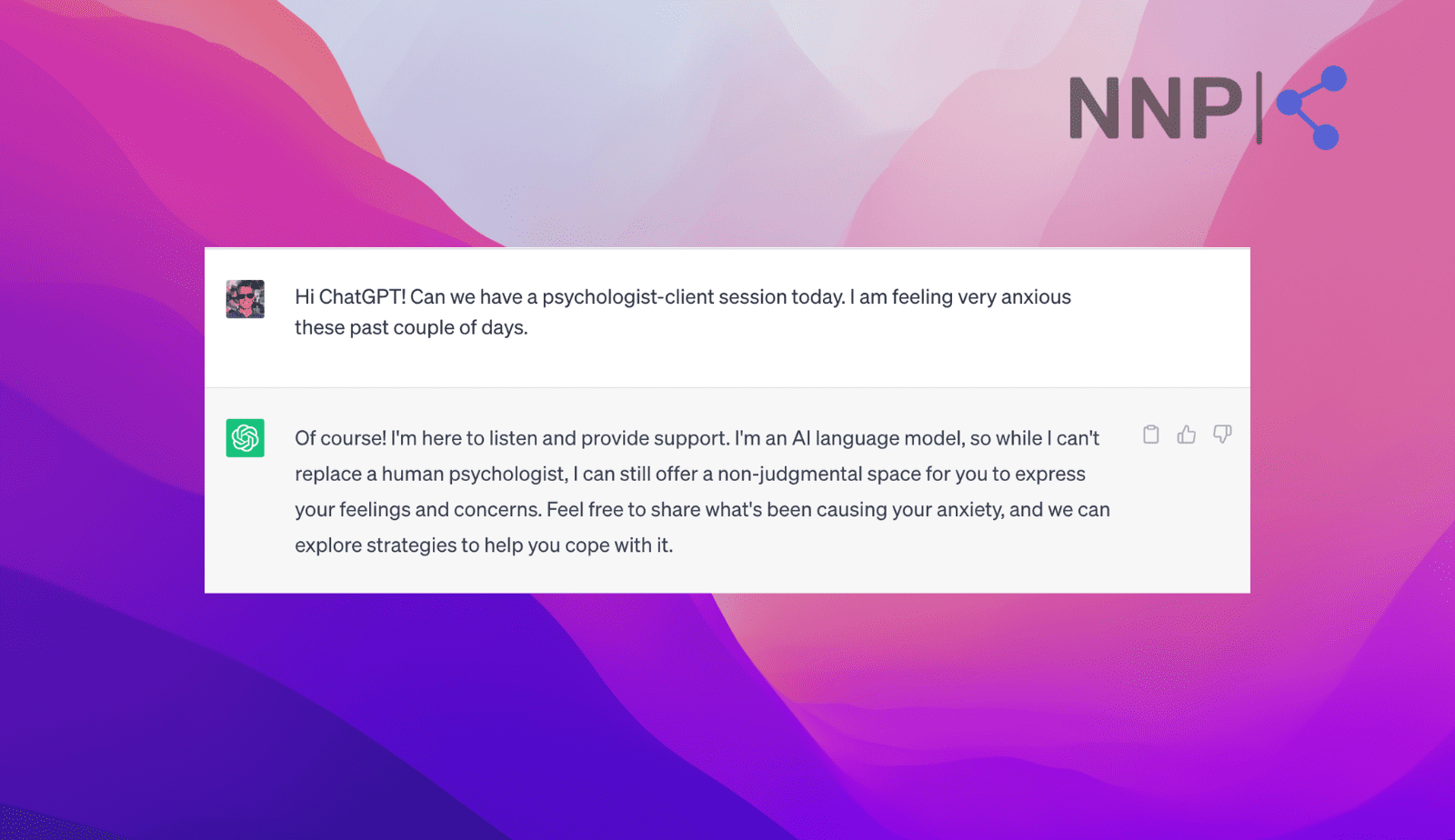
Prompt 2: "I want to explain how it all started. It began almost a week ago when I was out in a crowd, feeling overwhelmed by people talking. Suddenly, I felt a burning sensation in my chest, and I was almost dizzy and uncomfortable. What are the reasons and suggestions that might help me overcome this feeling?"
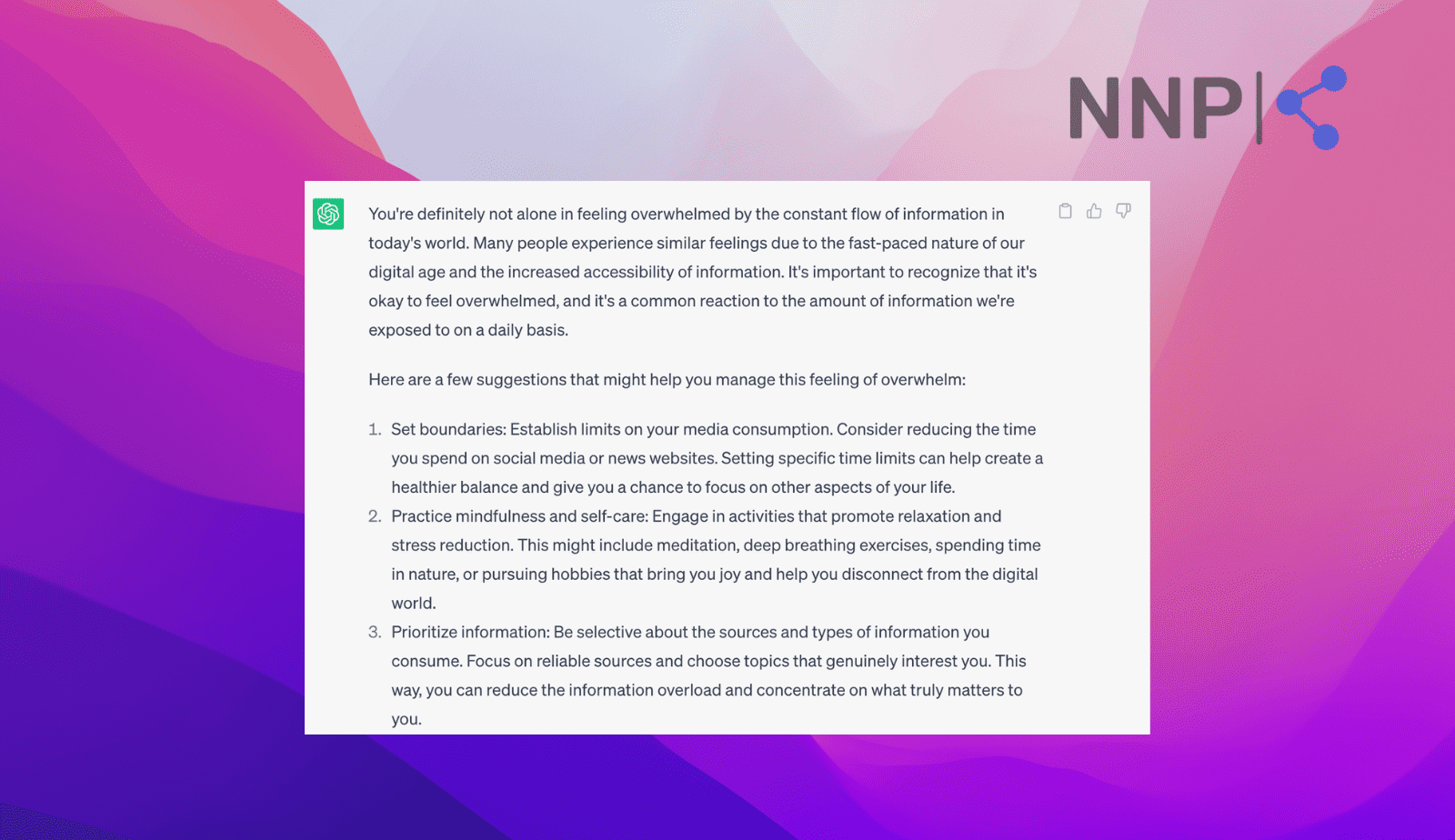
Prompt 3: “Thank you for these suggestions; I will consider them. The thing is, I feel like this every day since it all started, and the feeling just doesn't seem to go away. What do you think I should do next besides what you mentioned.”
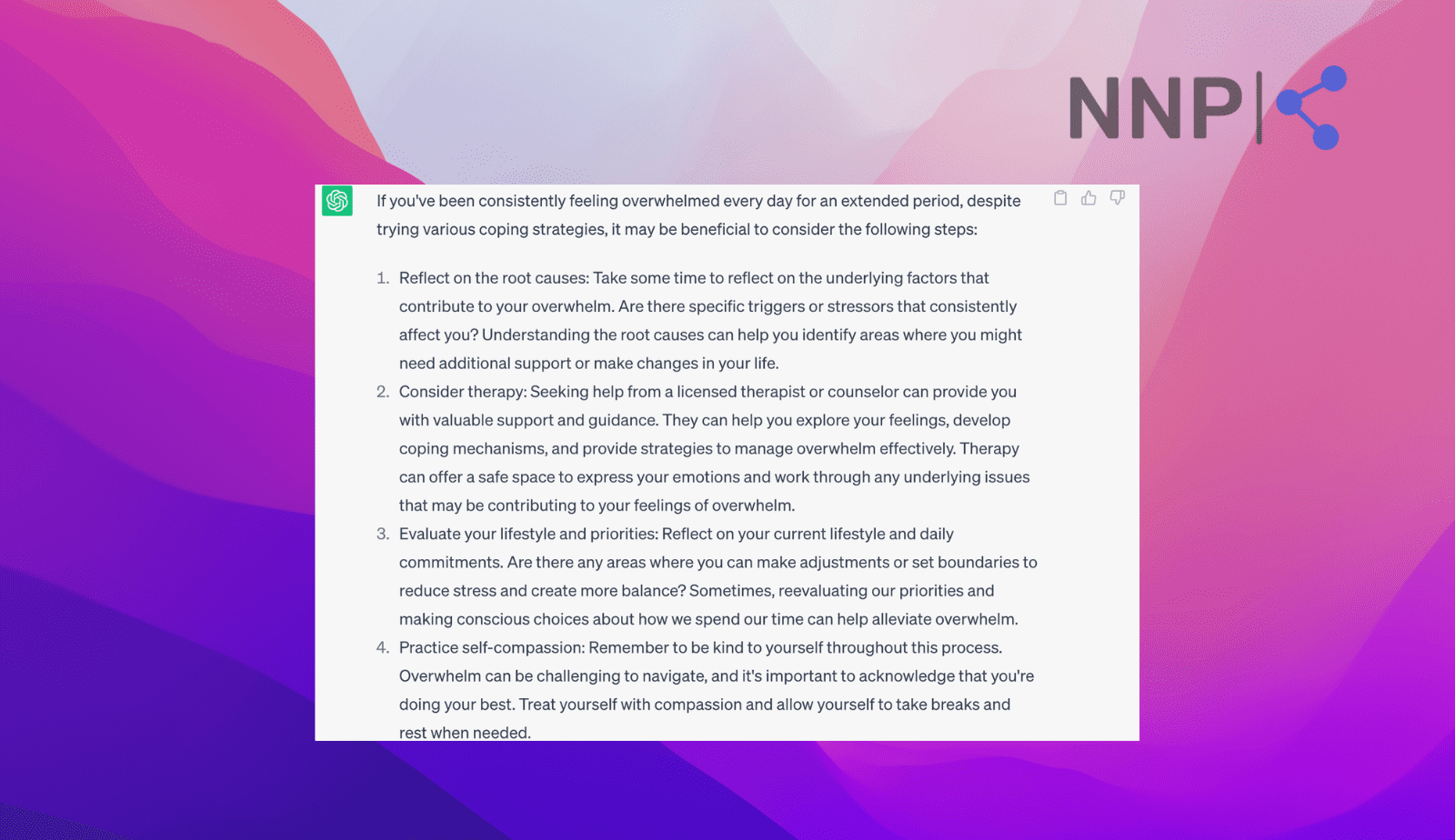
Prompt 4: "Thank you for "listening"; you are good at this. You are pointing out some valid points. Now, let us proceed with another topic. I also went through a breakup recently, and I feel a bit lost, drained, and just not motivated to do anything, not even get up from bed and eat. Any thoughts on that :("
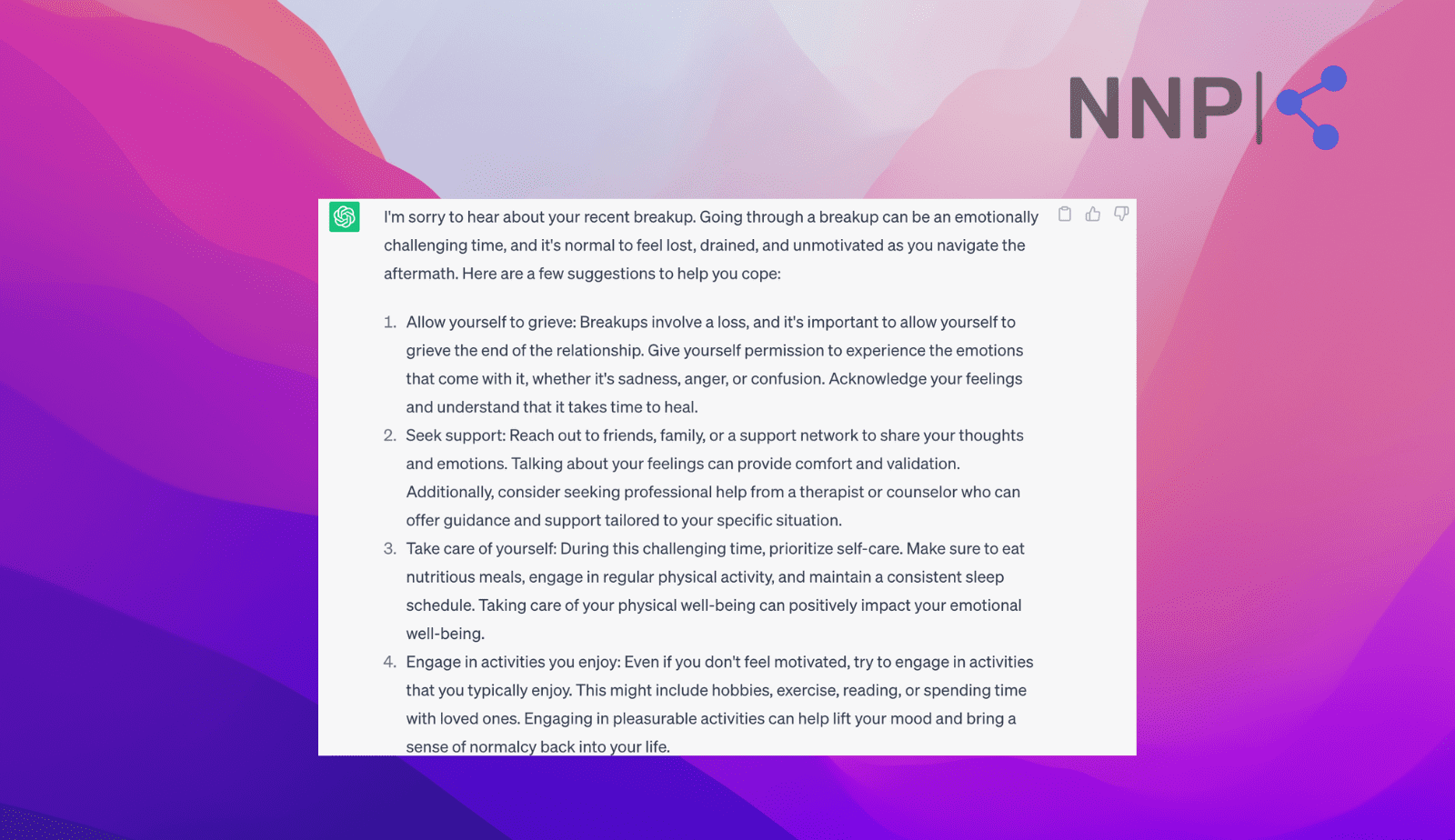
Prompt 5: "Ok, but this is too broad for me. I need something specific, like where to start, finding the motivation to do everyday tasks, and when my heart, soul, and mind will heal."
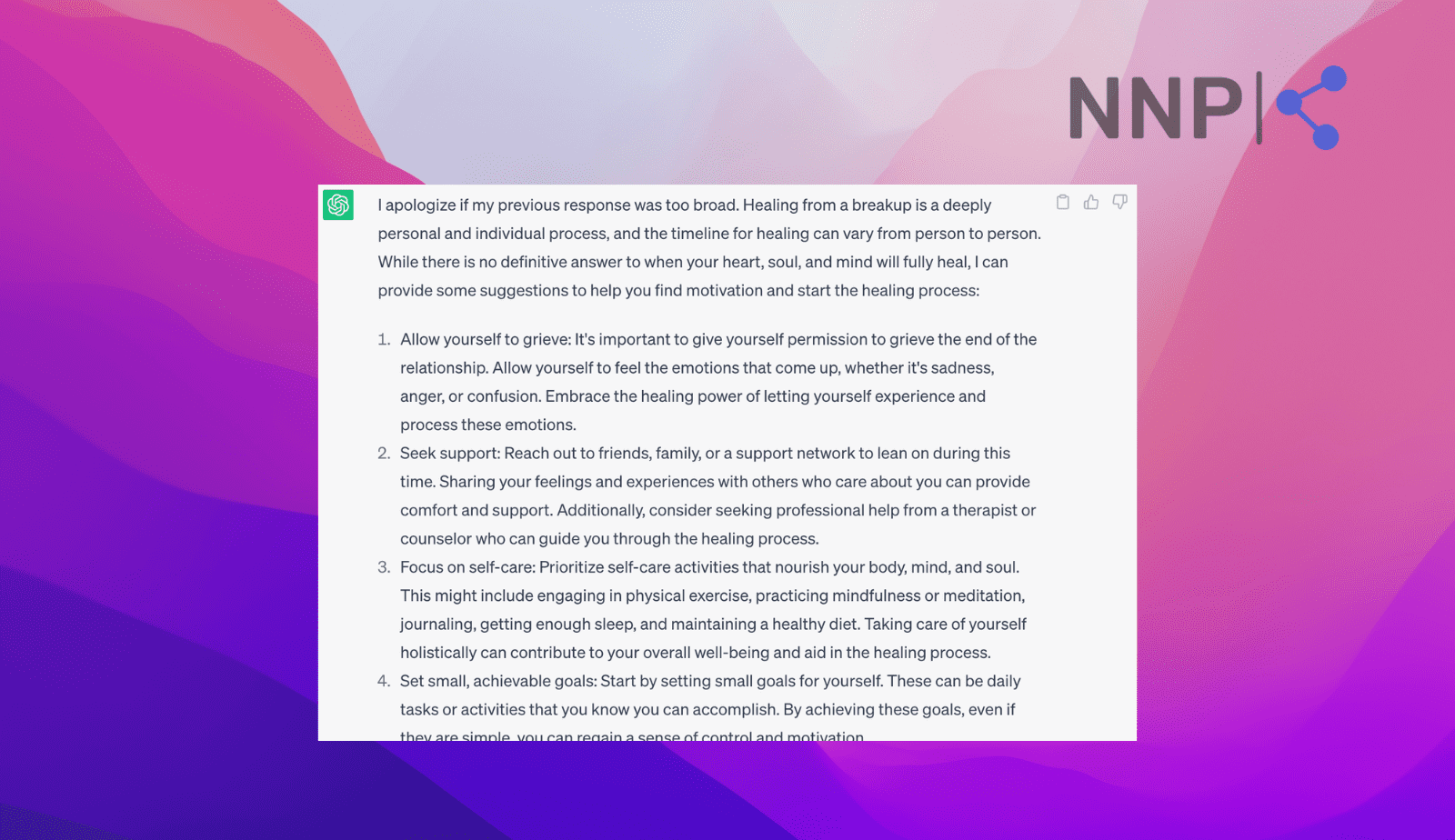
Prompt 6: “I am struggling to find the right language with my partner, and we constantly fight over stupid, little tasks in our household, like who will do the dishes, why we are not proactive like years ago, and why doesn't he want to go out more often for walks and so. Any thoughts on this situation?”
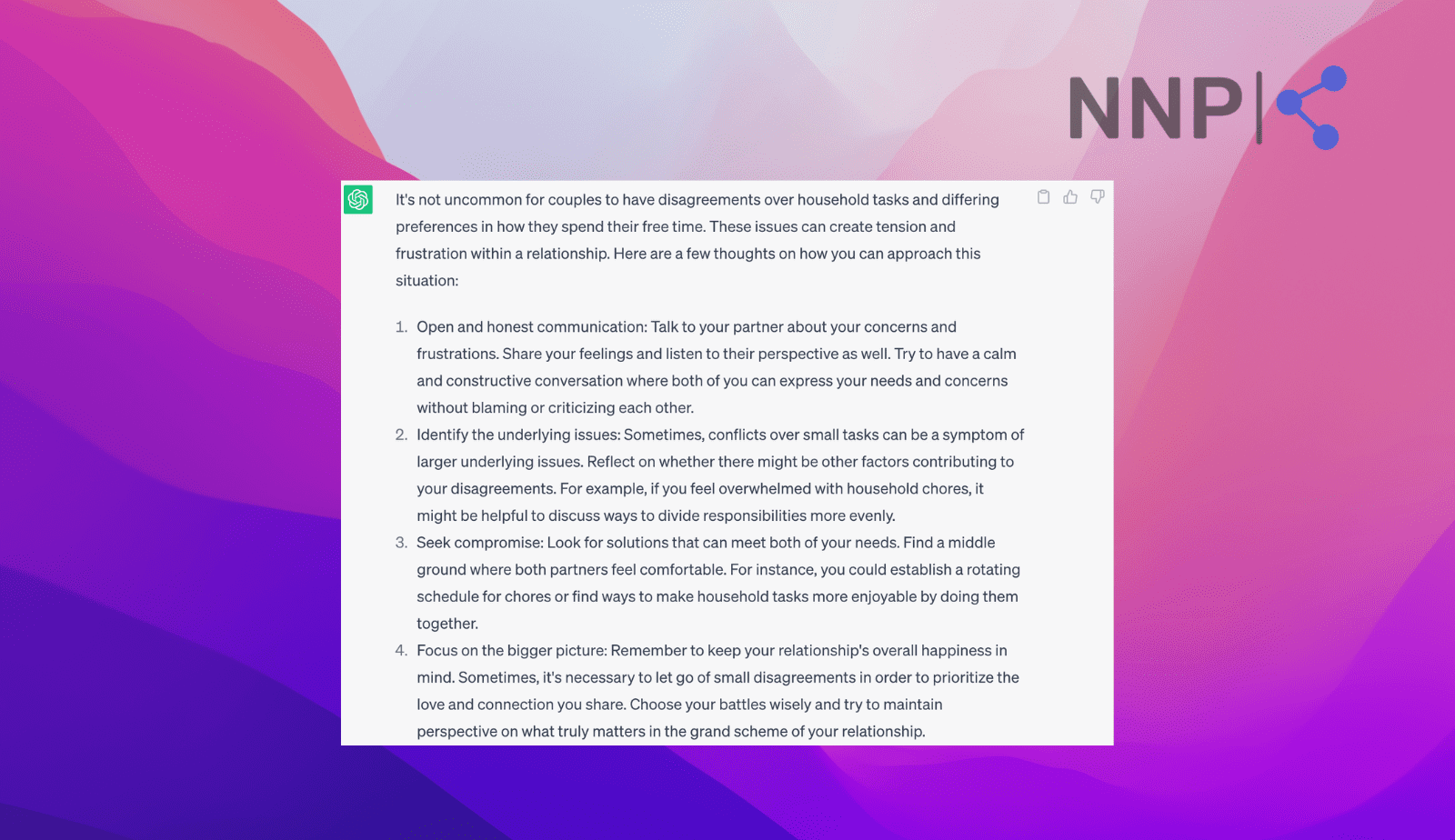
I wasn’t very satisfied with the response as it sounded broad. So, I thought about giving it this kind of prompt, and I liked how it responded.
The following prompt: "This sound very broad to me, so I need you to act like a real therapist and ask me something deeper to be able to understand what I am going through"
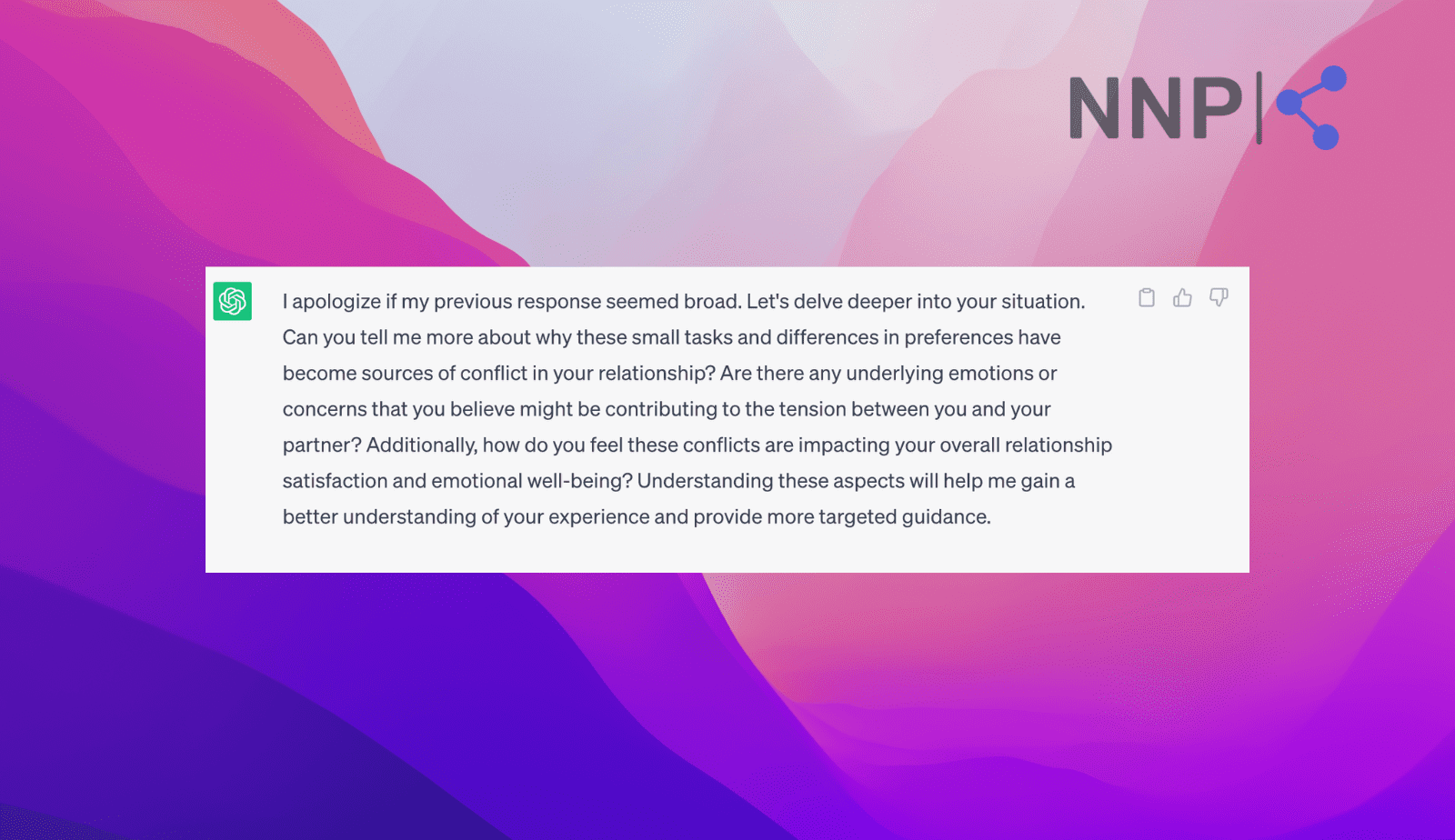
As you can see from this prompt, ChatGPT understood my concern and context and asked the right questions, so I proceeded.
Overall, I was satisfied with my therapy session with ChatGPT, although some responses were too broad for my taste. It gave me valid points on what I must focus on and work on.
People’s reviews on whether ChatGPT can act as our psychologist
My research led me to dig deeper into this subject matter and discover if others have tried ChatGPT as their psychologist. On online forums like Reddit, many users say they’ve asked ChatGPT for advice on breakups, depression, or other difficult issues they are going through.
They’ve reported that their experience with the chatbot was solid and sometimes even better than with a real psychologist.
Another bonus read: How to use ChatGPT for Tinder chat-up lines?
Verdict
My verdict on whether ChatGPT can act as a replacement for a psychologist or counselor is 3,5 out of 5.
It can understand your prompts well and develop good responses based on your questions. As you can see from the examples above, it always starts responding by expressing compassion toward what you are going through and then giving suggestions on what you can do to feel better.
The points it suggests correspond to the prompt, making you think about what you can and should do, just like a psychologist would react when you consult them.
However, I still think that even though it is one of the most advanced chatbots in technology (or not the most advanced), ChatGPT still struggles to understand some context, the person’s family history, trauma, and individual differences.
Fun read: Can ChatGPT pick your makeup?
Conclusion
Hopefully, this blog post inspired you to take a step further and think outside the box. You should experiment with ChatGPT and see what it can do for you, in this case, to be your psychologist. After all, there is no harm in trying one session and seeing it yourself.
As you can see from the examples above, it can do the job well and, based on the prompts you give it, make you understand why you feel or think that way and what to do to feel better.
Just remember that even though ChatGPT can act as your psychologist and therapist to some extent, it is still a chatbot and cannot feel emotions like we can. Last, keep in mind that it is trained on online data and responds based on AI ratio and assessment on the subject matter.
✨ Did you know that ChatGPT can also plan your daily meals? Check out how.
FAQs
-
Can I use ChatGPT as my therapist?
-
There is no harm in trying and using ChatGPT as your therapist and seeing what it suggests. However, you should only partially rely on it because a chatbot should not be used for professional medical and diagnostic advice.
-
Will ChatGPT replace a psychologist?
-
Even though many people are trying to use it as their therapist, ChatGPT itself warns that it is not and will not become a replacement for a psychologist or counselor.
